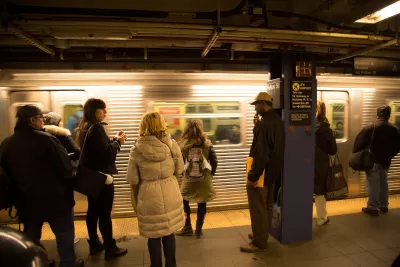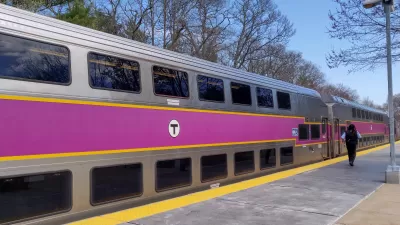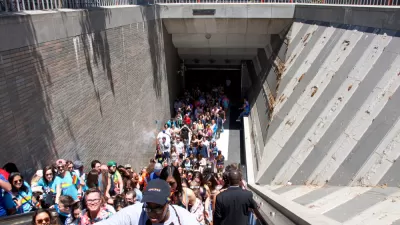Transit ridership has surged in other countries but lags here in the United States. The possible reasons for this are varied as are proposed solutions for improving American transit systems.

Aditi Shrikant considers the current state of transit in the United States and reasons for the lack of public concern about quality of service and public investments. Ridership here is much lower than in Asian and European countries, and Shrikant points out that the most robust transit systems are in large northern and coastal cities.
American public transit has faced a myriad of problems, including safety issues, political resistance and controversy, and negative public perceptions. One reason it has not improved may be that Americans do not use public transit enough or fully understand how systems operate, and so they have less interest in transit policy and funding.
Another possibility is that the United States has not developed the kinds of modern transit systems seen in other countries. As a result, it lags behind in providing the state-of-the-art transit needed to transport large numbers of people.
One solution to boost public transit looks to shift travelers’ incentives rather than focusing on expanding transit systems, reports Shrikant. For example, higher gas prices and congestion charges are two disincentives to driving that encourage people to move to transit.
FULL STORY: Why US public transportation is so bad — and why Americans don’t care

Study: Maui’s Plan to Convert Vacation Rentals to Long-Term Housing Could Cause Nearly $1 Billion Economic Loss
The plan would reduce visitor accommodation by 25,% resulting in 1,900 jobs lost.

Alabama: Trump Terminates Settlements for Black Communities Harmed By Raw Sewage
Trump deemed the landmark civil rights agreement “illegal DEI and environmental justice policy.”

Why Should We Subsidize Public Transportation?
Many public transit agencies face financial stress due to rising costs, declining fare revenue, and declining subsidies. Transit advocates must provide a strong business case for increasing public transit funding.

Paris Bike Boom Leads to Steep Drop in Air Pollution
The French city’s air quality has improved dramatically in the past 20 years, coinciding with a growth in cycling.

Why Housing Costs More to Build in California Than in Texas
Hard costs like labor and materials combined with ‘soft’ costs such as permitting make building in the San Francisco Bay Area almost three times as costly as in Texas cities.

San Diego County Sees a Rise in Urban Coyotes
San Diego County experiences a rise in urban coyotes, as sightings become prevalent throughout its urban neighbourhoods and surrounding areas.
Urban Design for Planners 1: Software Tools
This six-course series explores essential urban design concepts using open source software and equips planners with the tools they need to participate fully in the urban design process.
Planning for Universal Design
Learn the tools for implementing Universal Design in planning regulations.
Smith Gee Studio
Alamo Area Metropolitan Planning Organization
City of Santa Clarita
Institute for Housing and Urban Development Studies (IHS)
City of Grandview
Harvard GSD Executive Education
Toledo-Lucas County Plan Commissions
Salt Lake City
NYU Wagner Graduate School of Public Service





























